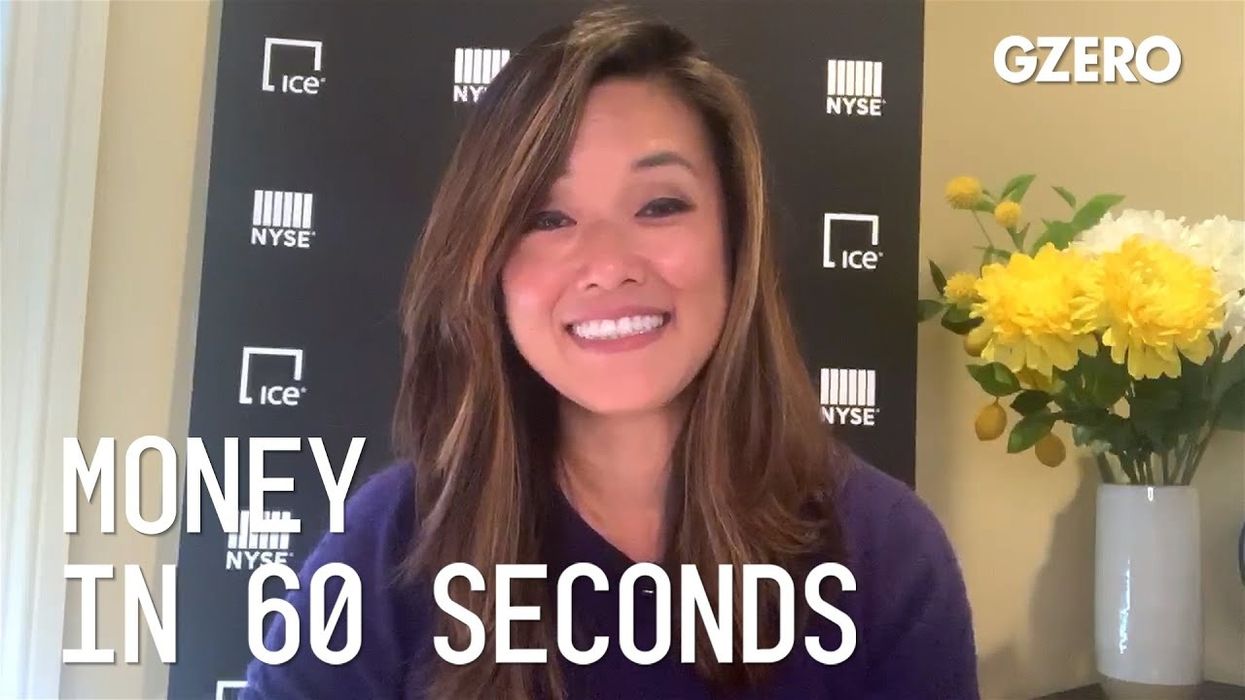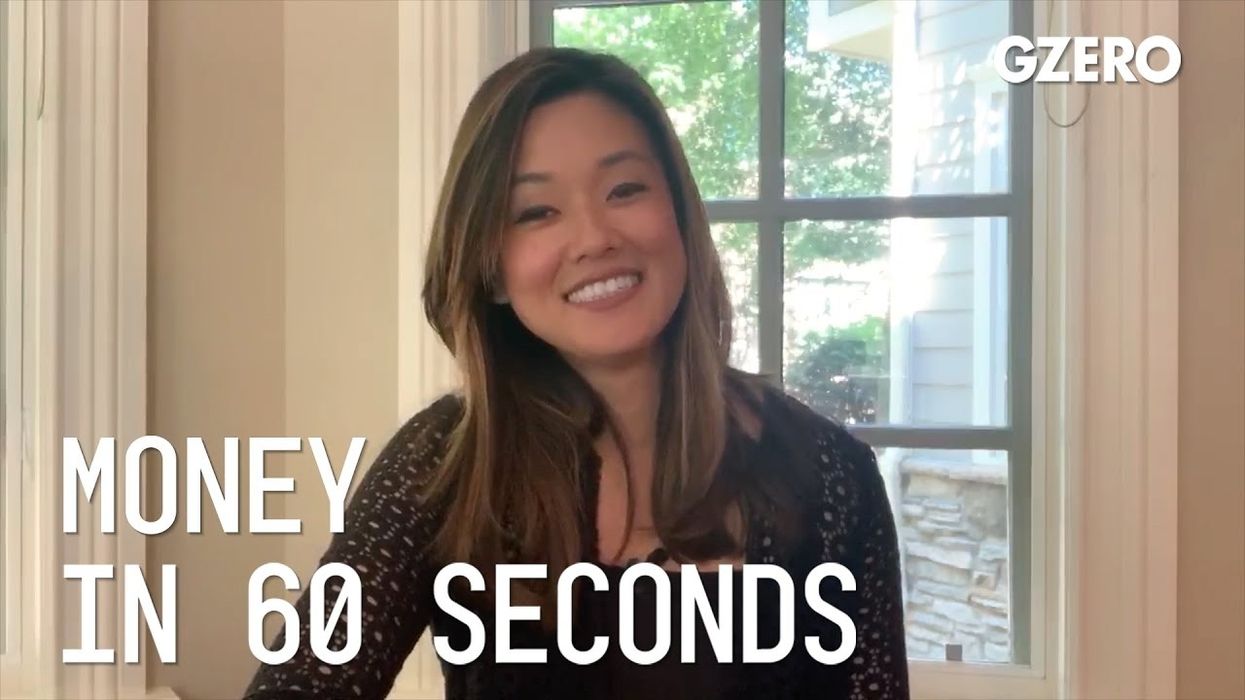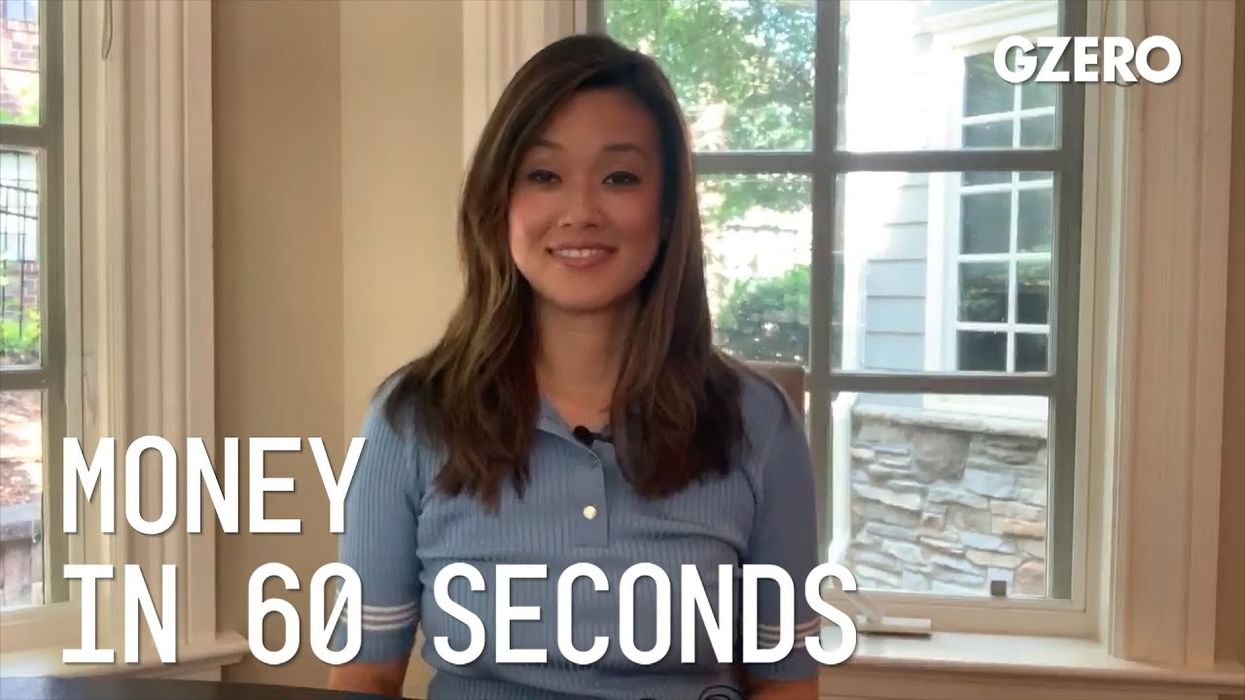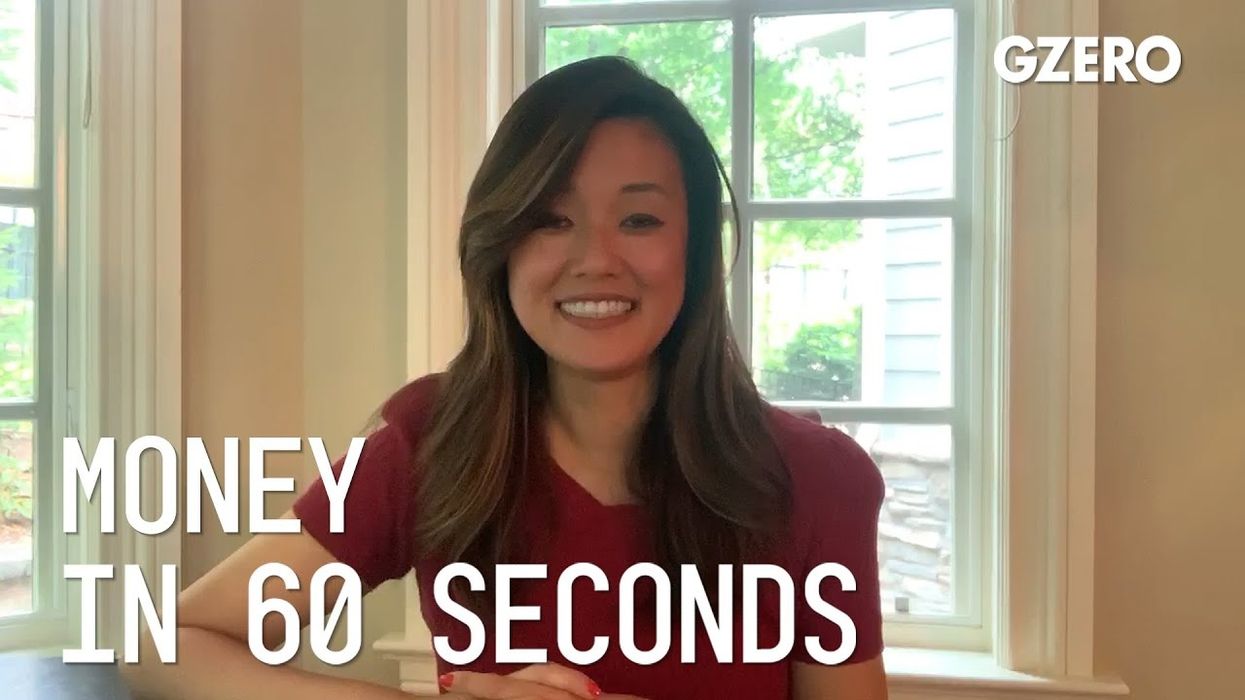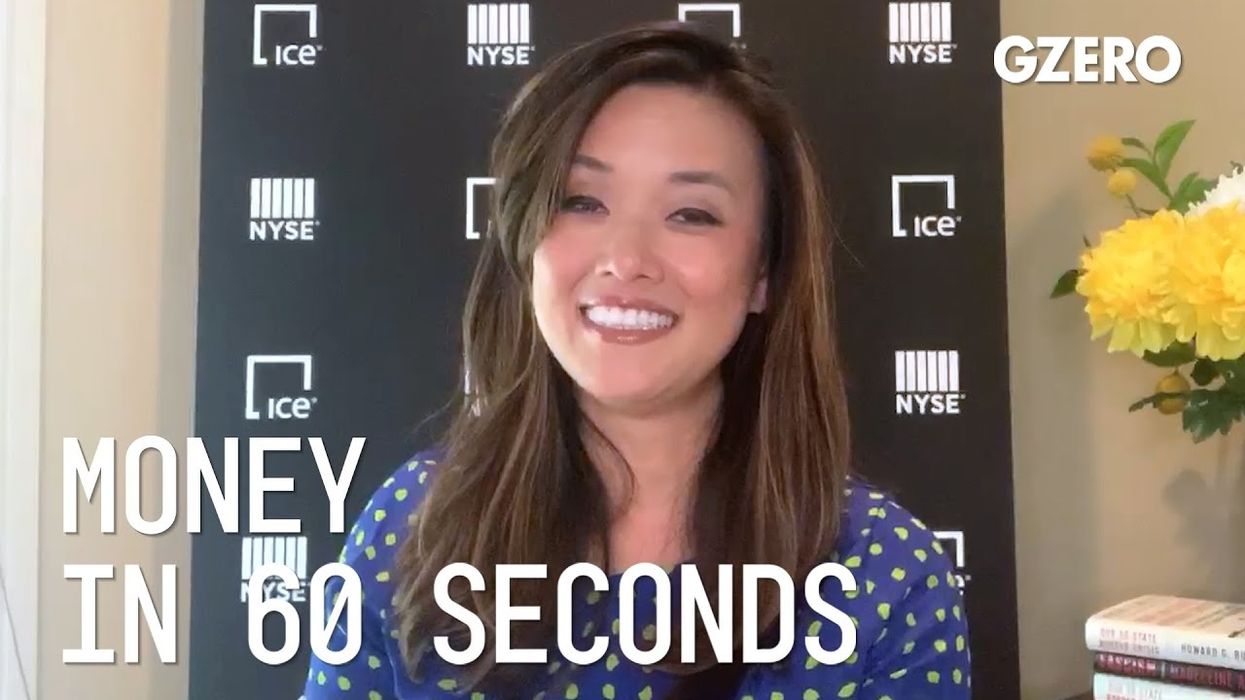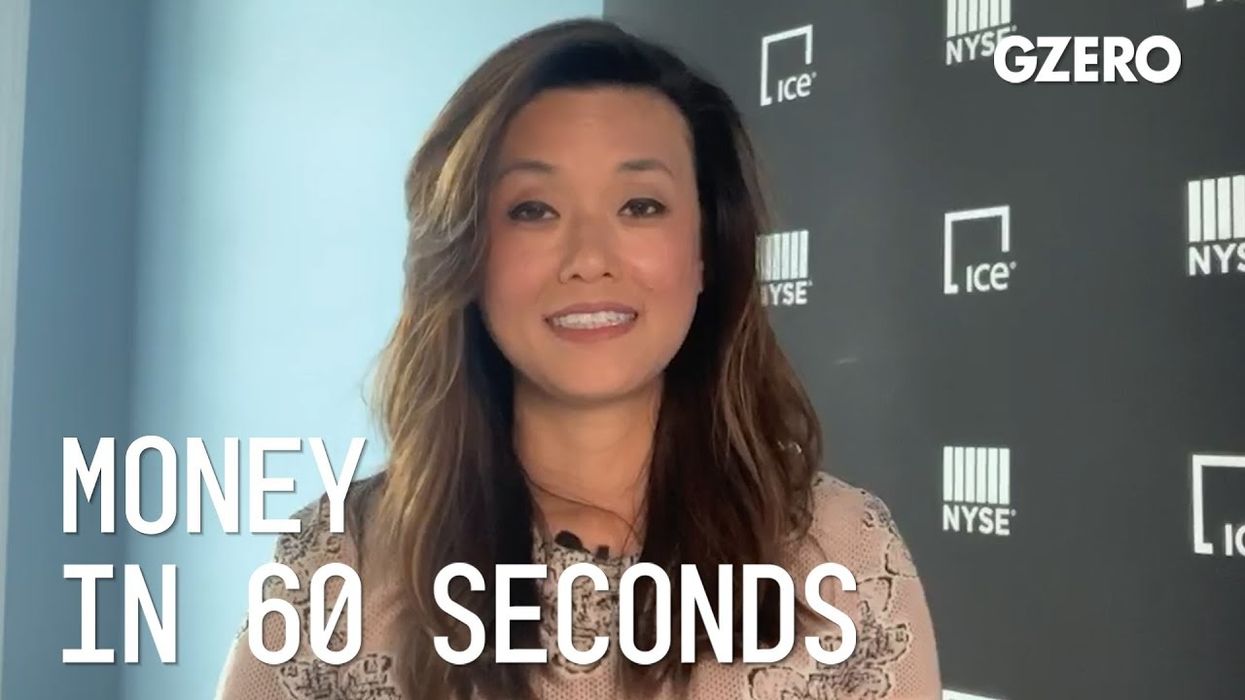Trending Now
We have updated our Privacy Policy and Terms of Use for Eurasia Group and its affiliates, including GZERO Media, to clarify the types of data we collect, how we collect it, how we use data and with whom we share data. By using our website you consent to our Terms and Conditions and Privacy Policy, including the transfer of your personal data to the United States from your country of residence, and our use of cookies described in our Cookie Policy.
Money
Betty Liu, Executive Vice Chairman for NYSE Group, explains:
What kind of unicorns could come out of this economic downturn?
So, that's an interesting question, because inevitably in any crisis, they're going to be new ideas to solve problems. Those new ideas will likely lead to new companies and those new companies will likely become unicorns, the next generation of unicorns. So, if you think about it, Uber was born during the last recession. If you go back a few more decades, Hewlett Packard was born during the Great Depression. General Motors was founded during a recession in 1908. There was one study that was very interesting, it found that back in 2009, more than half of the Fortune 500 companies were founded during a recession or a bear market.
How are existing companies adapting to the downturn?
So, this is a time when companies rise to the occasion to find ways, better ways to serve their customers. Take, for instance, a company like Dollar General. What they've done is they've implemented senior hours, earlier closing times, as well as limiting products in order to serve their customers better. And you can find examples like that across the spectrum, across the business landscape.
Betty Liu, Executive Vice Chairman for NYSE Group, provides her perspective:
What's been the role of the retail investor over the past few months?
So, US equity market volumes have been pretty high, remarkably high since the end of February 2020, and much of that is being attributed to the rise in retail investment activity. In fact, on peak market days, retail investors can account for up to a quarter of all market activity.
Is this the case for the options market as well?
So, absolutely. In fact, the options market has seen a spike in individual investment activity. That has driven volumes to record highs. So, eight of the top ten multi list options volume days have occurred in the first six months of 2020. So, pretty remarkable indeed.
Betty Liu, Executive Vice Chairman for NYSE Group, explains:
Why have SPACs been so popular recently?
Well, that's because companies are embracing newer ways to tap the public markets outside of the traditional IPO. You've heard me talk about direct listings, for instance. And now SPACs are having a very big year, this year. In fact, nearly a third of all US IPO proceeds raised have been raised through SPACs in the first half of 2020.
What is the biggest SPAC IPO ever?
So, implicit in that question is that these IPOs are getting bigger. In fact, we saw the biggest ever, last week, list. That was the Pershing Square Tontine Holdings SPAC, raising four billion dollars. Before that, we had the Churchill Capital Corp. SPAC, and that raised a billion dollars.
Betty Liu, Executive Vice Chairman for NYSE Group, provides her perspective:
What are analysts expecting, going to the second quarter earnings season?
So, this earnings season has just started this past week, you saw banks kick off their reports. And as you can well imagine, analyst estimates are pretty much all over the place. And part of that is because a good number of companies did not provide guidance. Now, according to some estimates, some analysts estimates, we could see an earnings season decline or earnings decline as much as 44% this time around. That would be one of the biggest declines since 2008, the prior crisis.
What is the outlook for the second half of 2020?
Well, that's the million-dollar question. What is going to happen the rest of the year? So, nobody knows, right? But there's a few factors that we're going to be watching to see how companies perform. One is going to be watching the number of coronavirus cases across the country. And the second, of course, is watching the results of the November presidential elections.
Betty Liu, Executive Vice Chairman for NYSE Group, provides her perspective:
Over the past few weeks, more companies have been going public. Why is that?
Well, as you might recall, back in March, when we first saw the pandemic erupt, the markets were extremely volatile. And in fact, we triggered the market wide circuit breakers a total of four times between March 9th to 18th. At that time, you had some companies tap the capital markets to raise funds for short term funding needs, but there weren't a lot of IPOs. Now the markets are a little bit more calm, so to speak, and that means that the IPO window is opening. You've seen companies like Albertson's, Dun & Bradstreet and Lemonade go public in just the last few weeks.
What is the IPO window?
So, some analysts refer to this as the open window when private companies can tap the capital markets and go public. So, this window is usually at a time when the market conditions are more conducive to a company raising funds and going public. And that is exactly what is happening right now.
Betty Liu, Executive Vice Chairman for NYSE Group, provides her perspective:
What role does diversity play in investing?
So, diversity has played an increasingly important role in investing. In an earlier episode, I talked about ESG - that's environmental, social and governance - and ESG factoring more into investment decisions. Diversity is a key component of ESG. It's seen as crucial in looking at good governance and good decision making. So, a growing number of investors are looking at diversity as a metric to show whether or not this company is worthy to invest in.
What are public companies doing to advance diversity today?
As you all have seen in the last several weeks, there has been an increasing focus on diversity and companies have come out and reaffirmed their commitment to diversity and also pledging to do better. So, some of those commitments include looking at pay equity as well as opportunities for advancement, real opportunities for advancement. One of the things we're doing at the New York Stock Exchange and I'm very proud of, is reform the NYSE Board Advisory Council, whose mission is to improve diversity on public and private company boards. We help our listed companies find and place diverse board candidates.
Betty Liu, Executive Vice Chairman for NYSE Group, explains:
How has the housing market reacted to the COVID-19 pandemic?
So, as you can well imagine, when stay-at-home orders are put in place, the housing market just dried up. Sales fell dramatically. Existing home sales in the month of April dropped nearly 18%. However, home prices actually continue to still rise. The median price for an existing home in the United States was $286,000. That was a rise of 7.4% from April of 2019.
Why haven't we seen home prices drop due to all this economic uncertainty?
So, as I mentioned, demand fell sharply for houses, existing houses in the United States during this COVID pandemic. And you don't need an economics degree to know that when demand falls, that means prices drop as well. But that didn't happen this time around. And the reason is because supply also fell as well. So, that basically left the supply-demand relationship unchanged.
